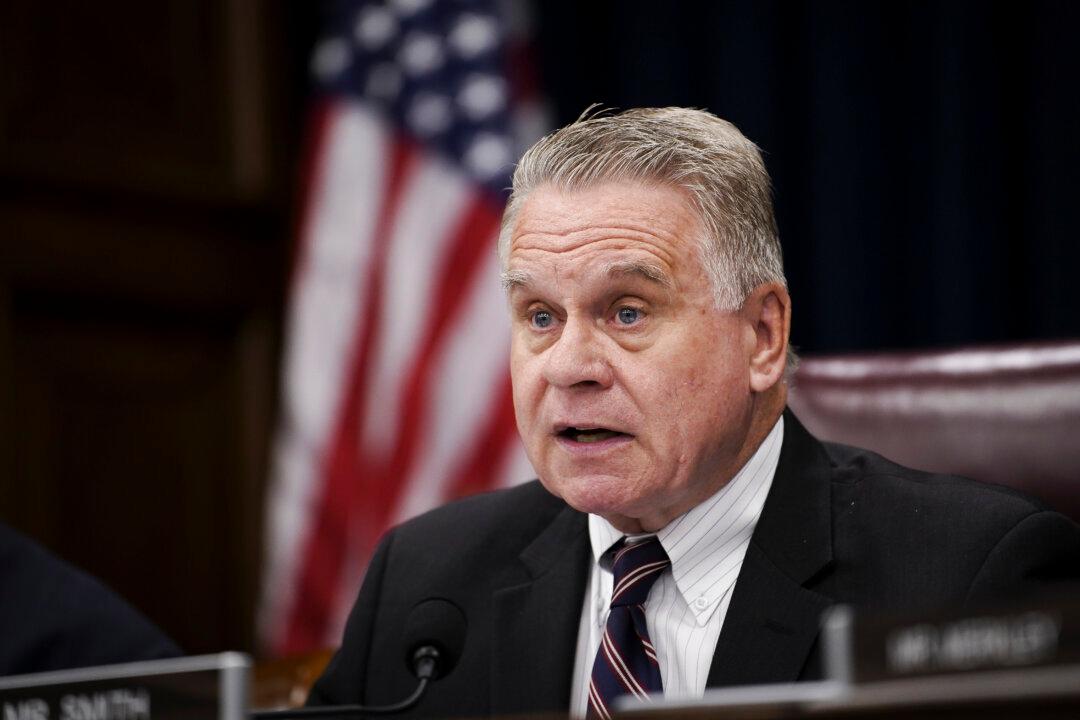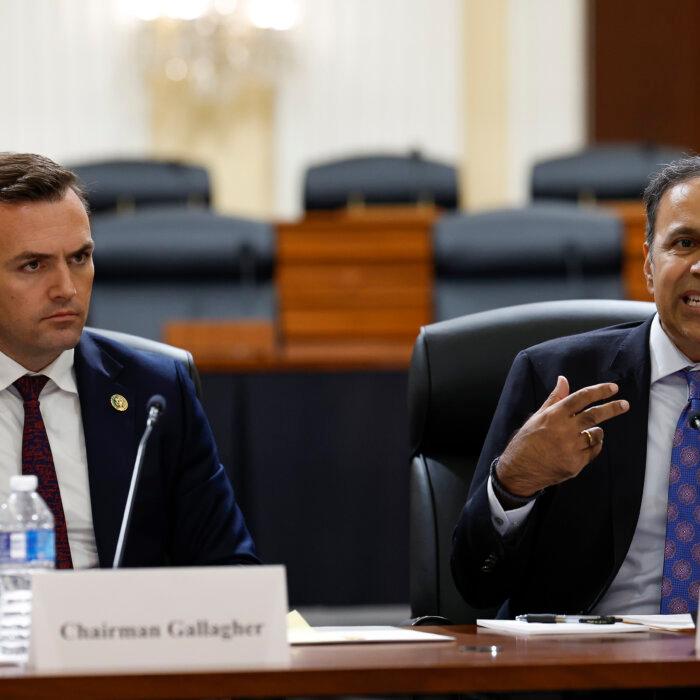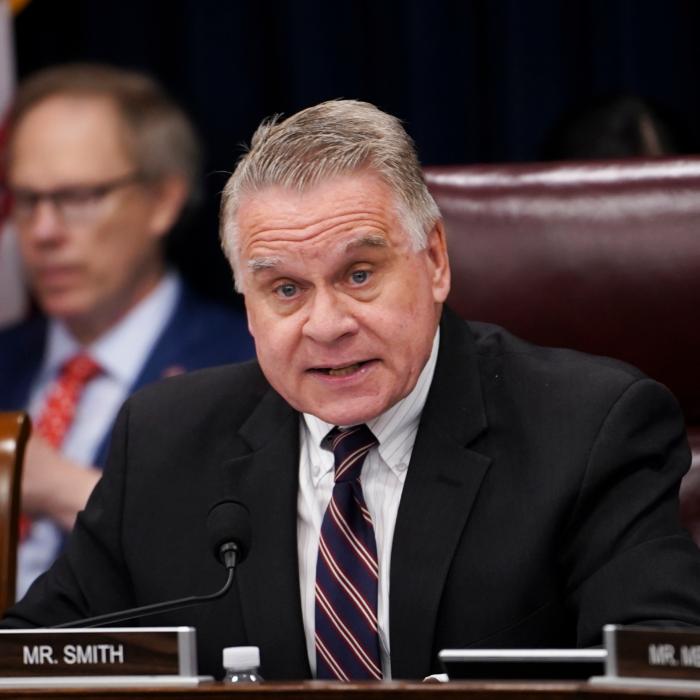Rep. Chris Smith (R-N.J.) said recent violence committed by pro-Beijing supporters in San Francisco should be a pivot for Congress to take action against communist China’s transnational repression.
Xi arrived in the city on Nov. 14 for the Asia-Pacific Economic Cooperation (APEC) summit. Many decided to use his visit as a platform to peacefully protest against the CCP’s human rights violations, holding demonstrations at the San Francisco International Airport; on streets near the Moscone Center, where many APEC meetings were held; in areas outside of the St. Regis Hotel, where Xi stayed; and in other locations in the city.
However, the peaceful protests were marred by violence, as Xi’s supporters and pro-CCP demonstrators used flagpoles, umbrellas, and other tools to attack those speaking out against the Chinese regime.
“It is my sincere hope that this bill will be voted on promptly to become law and hold foreign governments accountable for their actions,” Mr. Smith said.
The legislation aims “to hold foreign governments and individuals accountable when they stalk, intimidate, or assault people across borders, including in the United States,” in part by requiring the creation of a tip line with the Department of Justice and the Department of Homeland Security that people can use to report incidents of transnational repression.
The act requires training for U.S. diplomatic personnel and federal employees in identifying transnational repression. The U.S. president must present Congress with a list of foreign individuals subject to sanctions for their involvement in such campaigns.
“What happened at APEC has to be ... another major pivot point for all of us. Our FBI, our Justice Department need to get on this, and on this now” to protect these “wonderful people,” Mr. Smith said, referring to rights activists.
In an interview with The Epoch Times’ sister media outlet NTD following the press conference, he said he had asked Rep. Michael McCaul (R-Texas), chairman of the House Foreign Affairs Committee, to mark up the legislation.
“I believe he will,” Mr. Smith said. “Delay now is denial. And I think the pivot for all of this, like I said before, in terms of transnational repression, was the APEC.”
‘I No Longer Feel Safe’
Ms. Kwok recounted how she was harassed online after she posted her travel plans to San Francisco on X, formerly known as Twitter, on Nov. 11, inviting the public to join her protests.“Approximately 12 hours after the post, I started receiving rounds of comments from pro-Beijing accounts that threatened my physical safety,” she said, noting that one comment warned her that she would soon take part in her “last protest.”
While Ms. Kwok was never physically beaten during her stay in San Francisco, other protesters weren’t so lucky.
“For example, Carmen Lau, an exiled [Hong Kong] district counselor, had her hair pulled and was also assaulted at the protest,” she said.
“Kennedy Wong, another member on our team, was pushed to the ground during one of the protests outside of the San Francisco International Airport.”
Ms. Kwok is now concerned about her own safety.
“I thought the United States was a safe haven for me to continue my advocacy work, but last month proved me all wrong,” she said.
“Right now, I’m very sorry to say that I no longer feel safe to be in the United States, and I no longer feel safe to continue doing my advocacy work.
“If transnational repression continues to happen on American soil, to the extent we witnessed and experienced last month, I’m sure to say our communities will be dismantled by aggression and by fear soon.
‘Repression Spreads’
Pema Doma, executive director of Students for a Free Tibet, said during the press conference that she estimates that about two dozen Tibetan students were physically assaulted during the APEC summit.“CCP agents were targeting individuals and picking them off from the group as if they were prey to be intimidated,” Ms. Doma said.
She recalled an incident in which two 19-year-old Tibetan students were attacked by a group of 10 to 15 adult pro-Beijing males, who used flags that they were carrying to obscure their actions.
“As a daughter of Tibetan refugees, we can see how the repression spreads from Tibet to Nepal and ... around the world. And when we don’t say ‘no,’ when we don’t put an end to the transnational repression, it will continue growing and spreading in its intensity, its rigor, and its impacts on the communities affected,” Ms. Doma said.







